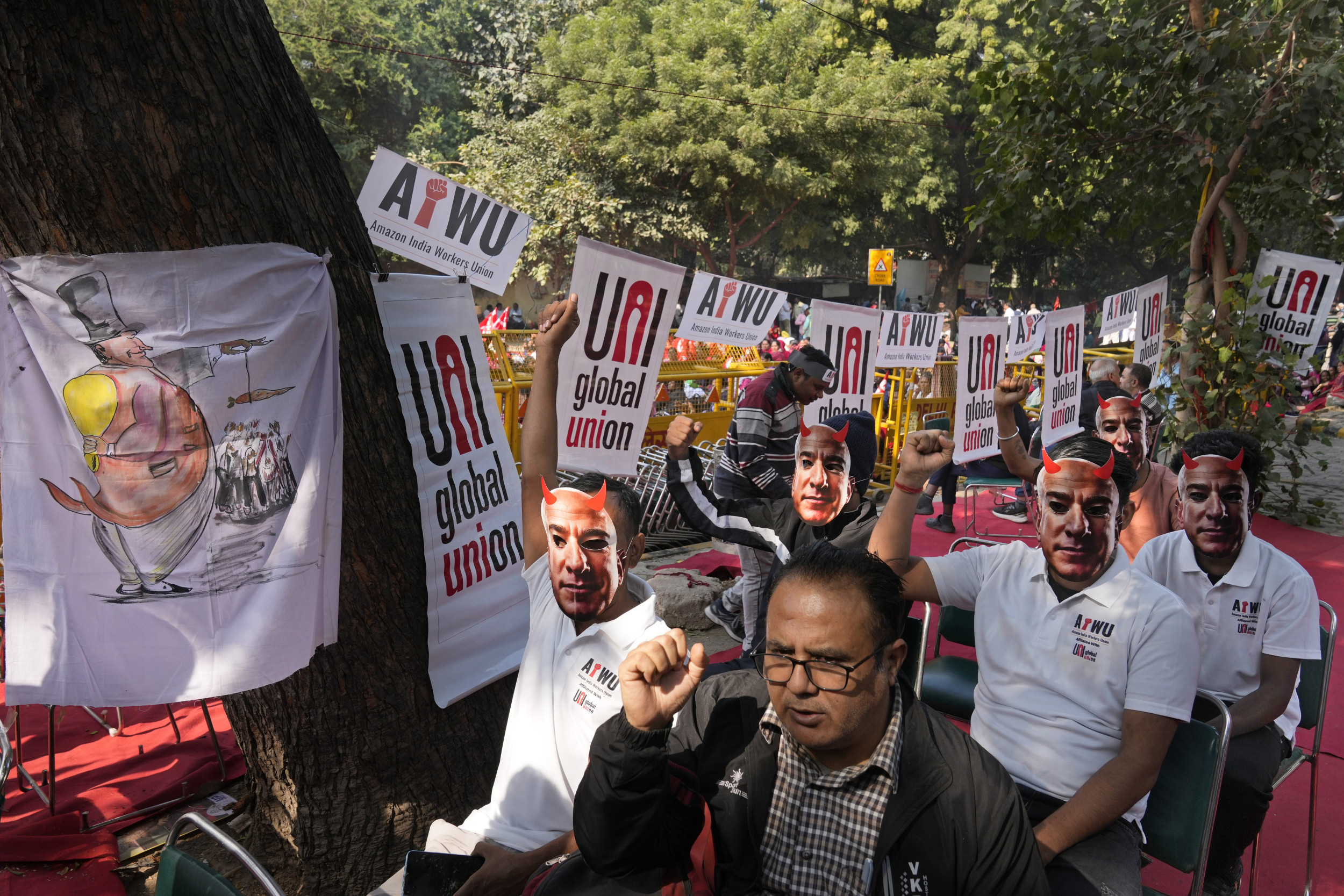Since Russia's full-scale invasion of Ukraine in 2022, Kyiv has been adamant about its desire to seek what it labels a "just peace." Just this past September, Ukrainian President Volodymyr Zelensky spoke at the United Nations, saying that "there can be no just peace without Ukraine." Zelensky did not define exactly what a "just peace" would look like, but it likely involves what he calls his "peace formula" which, among other things, demands that Russia withdraw all its forces from occupied Ukrainian territory and that Russian leadership be held responsible for war crimes.
This rhetoric has been used by the Biden administration as well. Also speaking to the UN, President Joe Biden said the war would continue until a "just and durable peace" was secured. And last year, Secretary of State Antony Blinken, speaking at the Summit for Democracy, argued that "for peace to be just, it must uphold the principles at the heart of the UN Charter: sovereignty, territorial integrity, independence." He argued that the peace must also ensure that Russia "can't simply rest and refit its troops, and then relaunch the war at a time more advantageous to it." In his next sentence, he fully endorsed Zelensky's peace formula.
The problem is that such a "just peace" is a fantasy; this should have been obvious to Blinken in 2023, when the war had stalled to a stalemate. But it should be crystal-clear today, in late 2024, as Russia slowly but surely advances into Ukraine's territory, including areas previously liberated by Ukraine during its vaunted Kharkiv offensive in late 2022. The pace of Russia's gains today has prompted the U.S. intelligence community to assess that the war is no longer a stalemate.
The core problem comes from the fact that such an idea of justice, while noble, can only be carried out with the threat of force. Indeed, that is how justice works within any state: If the government cannot successfully threaten force, it will not be listened to. If the IRS could not threaten audits, people would likely not do their taxes. If the police could not make arrests or issue fines, people would likely commit more crimes.
The situation is the same internationally. The United Nations was established to manage the bipolar post-World War II world. Its idealistic principles were ultimately cover for hard power. This is why the permanent seats on the United Nations Security Council belong solely to the winners of World War II.
That bipolar world order ceased to exist after the end of the Cold War; though the past 30 years have been a period of transition, the world is now clearly entering an era of multipolarity in which the principles espoused in 1945 (and never truly adhered to) simply will not fit.

This is not a simple philosophical debate over right and wrong. The rigid idea of "just peace"—one which can only be accepted if Ukraine gets all of its land back—negatively affects America's national interest and results in thousands of pointless deaths.
The latter point has become sadly obvious over the past few years. Though Ukrainians managed a genuinely inspiring defense of their country in the early days of the war—culminating in the Kharkiv offensive in late 2022—since then things have been on a slow, yet clear, downward spiral. Russia continues to take more and more land, has managed to get tangible reinforcements (recently welcoming 10,000 North Korean troops to fight against Ukrainian forces in Kursk) and has weathered economic sanctions. Ukraine, by contrast, is in trouble, economically and with recruits; in the (anonymous) words of one of Zelensky's advisors to Time late last year, even if they got all of the weapons they wanted, "we don't have the men to use them."
But the former point—that the demand for a "just peace" is injurious to America's national interests—should have been obvious even before the war turned dicey for Ukraine. An argument could be made that America's national interest would have been injured by Ukraine being entirely swallowed by Russia—but the United States is not deeply affected by where exactly the line is drawn between Russia and Ukraine. In the late 1990s, George Kennan—the man who effectively laid the foundations for Western Cold War strategy—wrote a blistering letter to the Clinton administration in which he warned that NATO-Ukrainian naval exercises near Crimea would only aggravate Russia. But yet, 10 years after Russia invaded Crimea, the Biden administration still seems unable to grasp that idealistic talk does not change hard reality.
President-elect Donald Trump indicated on the campaign trail that he wanted to see a quick ceasefire. The selections of Senator Marco Rubio (R-Fla.) and Representative Mike Waltz (R-Fla.) as secretary of state and national security adviser, respectively, along with leaks from advisers about a potential plan, indicate that Trump will seek that peace in the only way reasonably possible: He may force Russia to start negotiations through threats to arm Ukraine to the teeth if Russia does not cooperate but will, at the same time, force Ukraine to accept that it is simply not going to get back the land it wants. Then, he will turn his attention to places which genuinely do affect America's national interest, like China and the U.S.-Mexico border. If Ukraine continues insisting on Zelensky's unworkable vision of a "just peace," then the Trump administration can simply wash its hands of the situation.
The incoming Trump administration has a chance to start anew. Instead of seeking a "just peace," it should seek just peace.
Anthony J. Constantini is a Contributing Fellow at Defense Priorities.
The views expressed in this article are the writer's own.



















 English (US) ·
English (US) ·